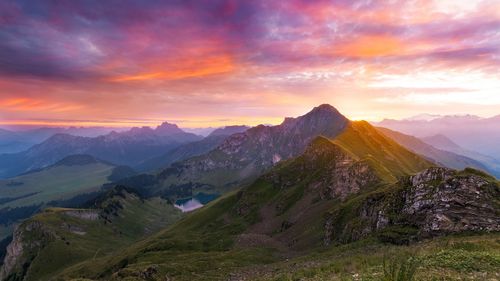Preserving Venezuela’s Rich Cultural Heritage: A Look at the Traditions and Customs That Make the Country Unique
Venezuela is a country known for its beautiful natural landscapes, delicious cuisine, and passionate people. However, what really makes this country stand out is its rich cultural heritage. From dance to music, art, and literature, Venezuela’s traditions and customs are truly unique and deserve to be preserved for future generations to enjoy.
One of the most iconic aspects of Venezuelan culture is its music. Although the country has produced many famous musicians such as Carlos Baute and Franco De Vita, its most recognizable musical style is probably salsa. This Caribbean rhythm has been embraced by Venezuelans and has become an integral part of the country’s cultural identity. In fact, many Venezuelans will tell you that there is nothing that can make them feel more proud of their heritage than hearing the sound of a salsa orchestra.
Another aspect of Venezuelan culture that is worth preserving is its love for the arts. This love is evident in the country’s many museums, galleries, and theaters. One of the most important art institutions in Venezuela is the Museum of Contemporary Art in Caracas. This museum is not only home to some of the country’s most important contemporary art collections, but it is also a space for experimentation and innovation in the field of contemporary art.
Aside from music and art, another aspect of Venezuelan culture is its cuisine. Perhaps the most famous Venezuelan dish is the arepa. This cornmeal-based bread is stuffed with a variety of fillings such as cheese, meat, or avocado. It is a staple food in Venezuela and has become increasingly popular in other countries as well. Additionally, Venezuelan cuisine is famous for its use of spices and flavors such as ají dulce, garlic, and cilantro.
Apart from its food, music, and art, Venezuela is also famous for its colorful festivals and celebrations. One such festival is the Carnaval de Negros y Blancos, also known as the Festival of Blacks and Whites. This festival, which takes place in the city of San Juan de Pasto, is a celebration of the area’s African, Spanish, and Indigenous cultures. During the festival, participants paint their faces black and white to symbolize the coming together of different cultures.
In conclusion, Venezuela’s rich cultural heritage is something that should be celebrated and preserved. Its music, art, cuisine, and traditions are unique and truly valuable. By cherishing and promoting these aspects of its culture, Venezuela can continue to showcase the beauty and diversity of its traditions for generations to come.
(Note: Do you have knowledge or insights to share? Unlock new opportunities and expand your reach by joining our authors team. Click Registration to join us and share your expertise with our readers.)
Speech tips:
Please note that any statements involving politics will not be approved.
